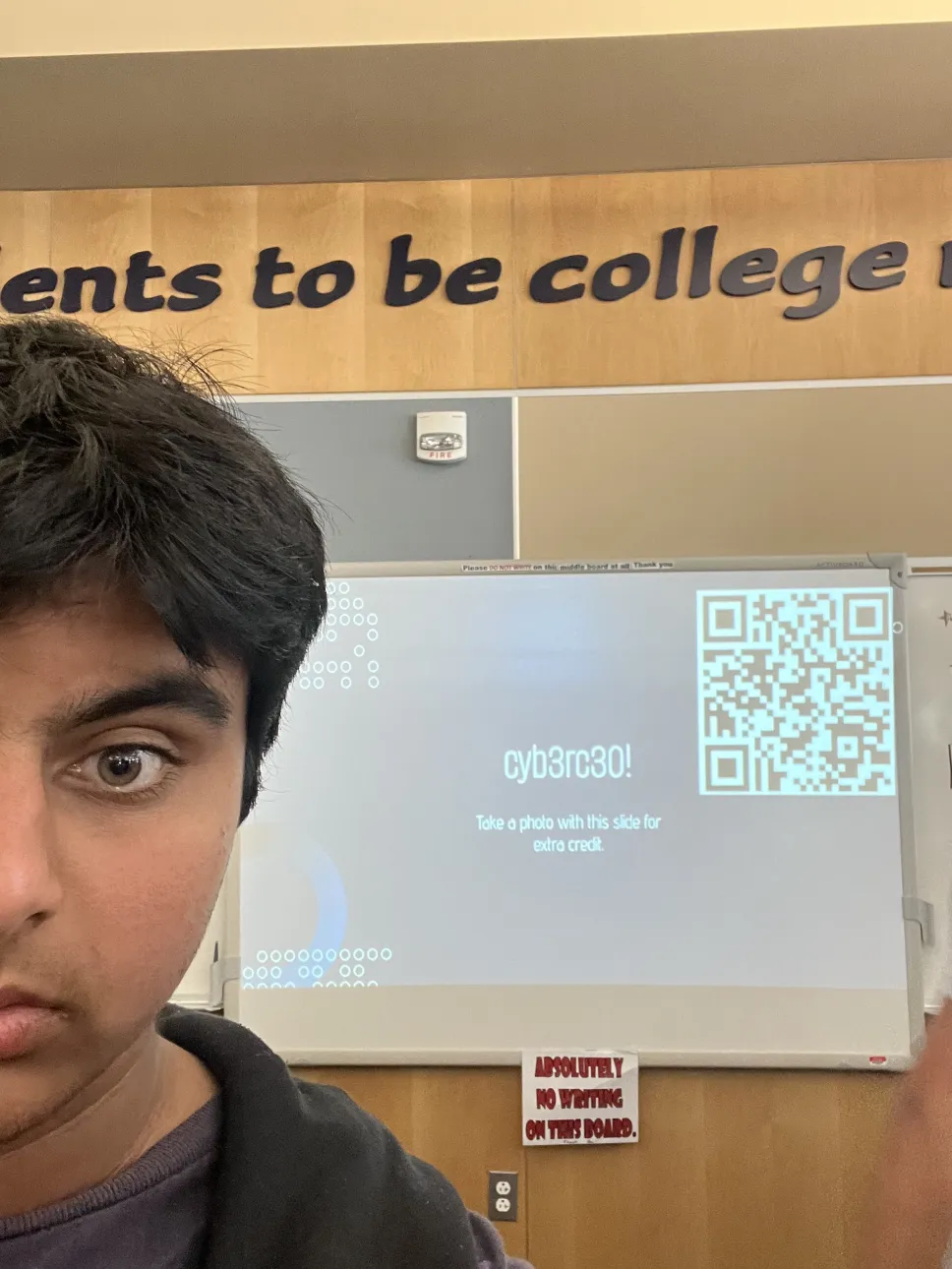Cybersecurity Panelist Reflection
Cybersecurity Panelist Reflection
Cybersecurity Panel – Key Takeaways Report
Today, I attended a panel featuring cybersecurity professionals from various sectors. The discussion offered real-world insights into cyber threats, ethical hacking, and career pathways in the field. Below are my key takeaways, reflecting both what I learned and how it connects to my personal experience in cybersecurity competitions like CyberPatriot.
Before I start, one of the things that interested me most is my connection to this industry, as I avidly participate in a nationwide cybersecurity competition named CyberPatriot. This piqued my interest for Cybersecurity and was one of the reasons I was so interested in coming here.
1. Cybersecurity Has Real-World Stakes
One of the most powerful moments was hearing a panelist describe the feeling of tracking a hacker for three years—and finally identifying them because of a small mistake. That level of persistence and attention to detail really stood out to me. It reminded me of the competitive pressure in CyberPatriot, where catching a small misconfiguration can mean the difference between winning or losing.
Beyond the stories, the impact of cyberattacks was clear:
- Ransomware is costing Americans tens of billions annually.
- Nation-state threats like Chinese IP theft are draining the U.S. economy—up to $100 billion each year.
- Even medical devices like pacemakers are vulnerable, showing just how far-reaching these threats are.
These examples made it clear that cybersecurity is not just about computers—it’s about protecting lives, economies, and infrastructure.
2. Attackers and Defenders Use the Same Tools
A big takeaway for me was that ethical hackers use many of the same tools as real attackers. For example, tools like nmap are essential for scanning and understanding networks. I’ve used nmap before in my own training, but it hit differently hearing professionals describe how these tools are used to secure—or exploit—systems in real life.
The panel also mentioned persistence tactics, where even ethical hackers may install backdoors to maintain access. It raised important questions about how to balance effectiveness and ethics—especially when defending critical systems.
3. Integrity and Ethics Are Non-Negotiable
One point that really stuck with me was how important integrity is in cybersecurity. When you’re dealing with sensitive data and potentially dangerous capabilities, trust matters. Panelists emphasized that the best professionals are the ones who hold themselves to high ethical standards—even when no one is watching.
This aligned with what I’ve experienced in CyberPatriot: it’s not just about technical skill, but also responsible decision-making.
4. Every Industry Faces Unique Cyber Challenges
I found it fascinating how different sectors approach cybersecurity:
- In business, the challenge is getting leadership to prioritize security—sometimes requiring simplified explanations.
- In government, cybersecurity professionals must learn fast and deal with outdated systems.
- In healthcare, even small vulnerabilities can become life-threatening.
The message was clear: no matter where you go, cybersecurity is critical—and every environment has its own pressure points.
5. Pathways Into Cybersecurity Are Diverse
Another key takeaway was how diverse the panelists’ journeys were. Some had military or software engineering backgrounds, others were drawn in by curiosity or even “forced” into the field. This made me reflect on my own journey—how competitions like CyberPatriot gave me a structured way to explore cybersecurity early on.
To get started, they recommended:
- Learning IT fundamentals
- Internships
- Building your own networks and testing environments
- Getting certified to learn without pressure
They also emphasized the importance of soft skills: communication, teamwork, and organization.
6. The Field Is Evolving Fast — Stay Curious
One panelist said that new research can be turned into an exploit within a day to a week. That really drove home how fast cybersecurity is moving. The key to staying relevant? Constant learning—whether that’s reviewing code, going to conferences, or reading up on new threats.
I’ve always enjoyed staying current, but this reinforced how important curiosity and passion are in this career.
Final Thoughts
This panel gave me a deeper understanding of what it truly means to work in cybersecurity. It’s not just about securing systems—it’s about thinking critically, acting ethically, adapting quickly, and caring deeply about the impact of your work.
My experience with CyberPatriot has given me a strong foundation, and this panel helped me see the bigger picture. I left more motivated than ever to keep building my skills—and to stay ready for the ever-changing challenges ahead.
Image proof to show my attendance:
